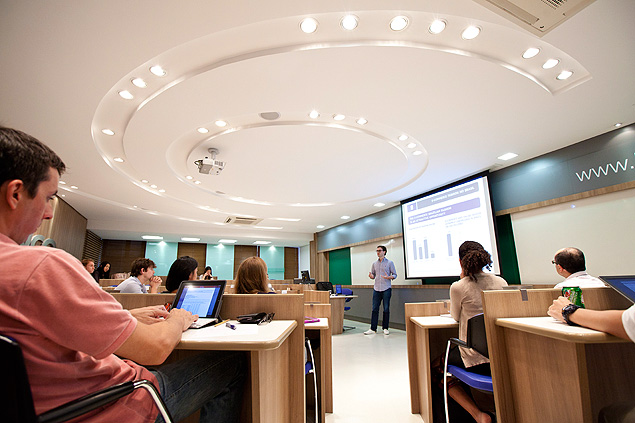Latest Photo Galleries
Brazilian Markets
11h55 Bovespa |
+1,28% | 126.243 |
16h43 Gold |
0,00% | 117 |
11h43 Dollar |
-0,68% | 5,1284 |
16h30 Euro |
+0,49% | 2,65250 |
ADVERTISING
Brazilian Elite Also Has Low-quality Education, says World Bank's Director for Education
09/04/2015 - 09h27
Advertising
FROM SÃO PAULO
Updatedat 17h18.
Learning problems in Brazil are democratic: although there are different levels, they reach all social classes without distinction.
As Senior Director for Education at the World Bank Group Claudia Costin reminded on Thursday morning (3), the young Brazilian elite (25% richest) have worse grades than the 25% poorest students from the member countries of the Organization for Economic Cooperation and Development (OECD) in Pisa rankings (International Student Assessment Program).
| Ze Carlos Barretta/Folhapress | ||
 |
||
| The young Brazilian elite have worse grades than the poorest students from the member countries of the OECD |
Costin analysed the problems and challenges of education in Brazil during the International Seminar on Roads to Quality Public Education: School Management. The expert pointed out the contradiction between Brazil being the world's eighth-largest economy and having low education indexes. The event is promoted by Instituto Unibanco and held in partnership with Folha.
But not everything is a disgrace. Brazil has virtually universalized the access to primary education and since 2003 has advanced in teaching mathematics.
Among other problems she mentioned, she ranked night high school classes as a "semblance of teaching".
President of the National Institute for Educational Studies and Research (INEP), Francisco Soares, said the data collected from all students since 2007 help understand the big picture of education.
"Where there is success, there is good management," he said. The problem is that according to the Constitution there should be a democratic administration, but it does not define it". The proposal submitted by Soares has three main axes: to guarantee rights, participatory management and transparency.



